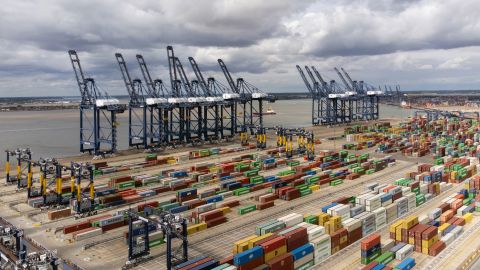China announces new stimulus measures
China has announced a raft of measures aimed at countering a prolonged downturn in its property market that is heavily weighing on the world’s second largest economy.
Last week People’s Bank of China governor Pan Gongsheng said the central bank would reduce the amount of reserves banks are required to keep, freeing up more money for lending.
He also announced the reduction of interest rates on loans to commercial banks and promised other moves to revive the slowing economy.
Chinese authorities also want to make property investment easier, with down-payment requirements for second home buyers reduced from 25 per cent to 15 per cent.
Interest rates for mortgages will be cut by about 0.5 per cent, helping 50 million households and 150 million people, Mr Pan said.
Disruptions and job losses during the COVID-19 pandemic, coupled with falling prices for homes, have left many Chinese citizens unwilling or unable to spend, sapping the economy of other engines to drive business activity.
Official figures for August put urban unemployment at 5.3 per cent, up 0.1 per cent on the previous month. Youth unemployment has risen to almost 19 per cent.
These new monetary measures are therefore intended to support the faltering economy, stabilise the housing sector and restore market confidence.
News of the initiatives lifted share prices, especially for real estate developers.
Hong Kong’s Hang Seng index jumped 4.1 per cent, while the Shanghai Composite index was up 4.2 per cent.
Some analysts said the latest, coordinated approach to supporting the property sector might be more effective than earlier, piecemeal efforts that so far had brought only scant relief.
It’s “a step in the right direction,” according to Julian Evans-Pritchard, lead China analyst at Capital Economics.
He noted that it represented the most significant central bank stimulus package since the early days of the pandemic. “But it will probably be insufficient to drive a turnaround in growth unless followed up with greater fiscal support,” the Singapore-based economist said.
Monash University’s associate professor of economics He-Ling Shi said “The seven measures announced, even if you put them all together, might not be strong enough to help the economy recover from the current economic trouble.
Unlike Australia or the United States, where inflation has been the main recent economic problem, China has been contending with slowing growth and downward pressure on prices due to slackening demand.
Dr Shi said it was “very likely” that China would fail to meet its yearly GDP growth target of roughly 5 per cent.
Chinese consumer confidence remains low and — in his view — the government had clearly failed to provide enough support to stimulate domestic demand.
The high level of government debt at local and provincial level in China further complicated the issue, according to Dr Shi, meaning there was limited capacity for fiscal stimulus in the near future.
Dr Shi said China would continue to face economic issues, particularly an anaemic private sector, as long as companies feel unsettled by the Chinese business environment.
Source: Reuters / ABC


